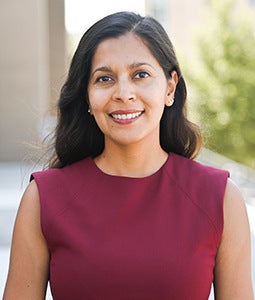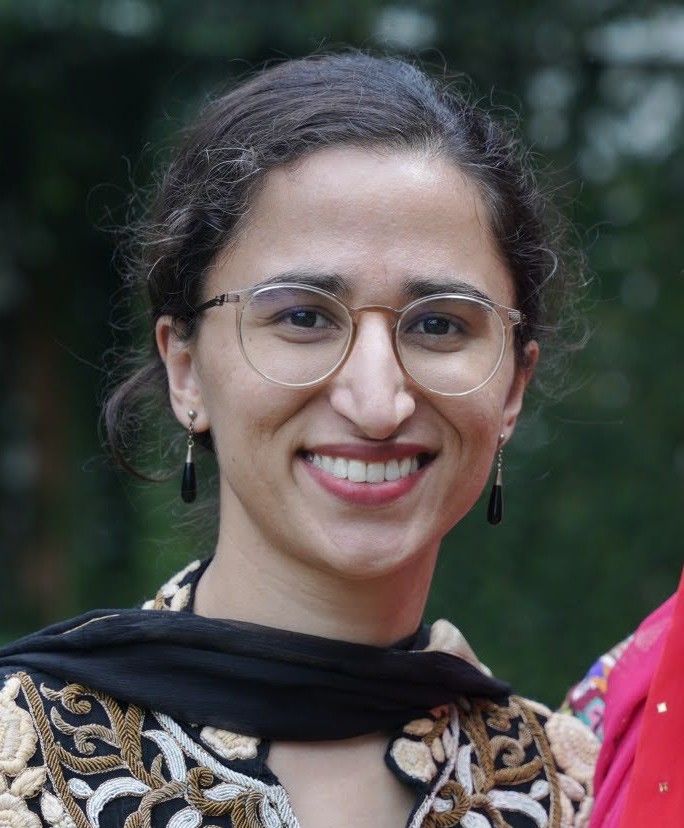Nutrition and Global Health Research and Training Program
The Nutrition and Global Health Research and Training Program is dedicated to scientific research, teaching, collaborative work, and training in nutrition and global health. Our program takes an interdisciplinary approach to teaching and conducting research about global health issues, with a special emphasis on concerns pertaining to low-and middle-income countries (LMICs).
665 Huntington Ave.,
Building 1, Floor 11
Boston, MA 02115
Nutrition and Global Health Program Faculty, Researchers, and Staff
The Nutrition and Global Health Program’s dynamic team, composed of esteemed faculty, dedicated researchers, skilled staff, and external partners who collaborate to address critical global health challenges. Our faculty lead groundbreaking research and innovative teaching, researchers drive impactful scientific discoveries, staff ensure seamless program operations, and our external partners enrich capacity building and our global perspective.
Faculty
Wafaie Fawzi, MBBS, MPH, MS, DrPH is a physician and epidemiologist focused on advancing global health research, education, and practice. He is the Richard Saltonstall Professor of Population Sciences, Professor of Nutrition, Epidemiology, and Global Health at Harvard T.H. Chan School of Public Health. Between 2011 and 2018, he served as Chair of the Department of Global Health and Population at Harvard. He established and continues to lead the Nutrition and Global Health Program, an interdepartmental initiative at Harvard where over the past 25 years he sought to strengthen the evidence base for advancing human health and development. He is an elected member of the National Academy of Medicine.
He directed the design and implementation of more than 30 randomized controlled trials and numerous large observational epidemiologic studies of maternal, child, and adolescent health, and major infectious diseases. He furthered understanding of the safety and efficacy of nutritional interventions in the prevention and management of major global health threats and spurred the translation of evidence into policy and programs. His work is published in over 500 original research papers and reviews. Key findings include evidence about the benefits of nutritional supplements to increase survival and immunity among adults and children with infections.
Christopher Duggan, M.D., M.P.H. is a graduate of Dartmouth College and the Johns Hopkins University School of Medicine. He trained in Pediatrics at Johns Hopkins Hospital, Nutrition and Gastroenterology at Boston Children’s Hospital, and Clinical Epidemiology at the Harvard TH Chan School of Public Health. He is Samuel Meltzer Professor of Pediatrics in the Field of Gastroenterology and Director of the Division of Nutrition at Harvard Medical School and a Professor in the Departments of Nutrition and Global Health and Population at Harvard Chan. He is a pediatric gastroenterologist and nutrition physician at Boston Children’s Hospital where he directs the Center for Nutrition. He is Medical Director of the Center for Advanced Intestinal Rehabilitation, one of the largest centers for the care of children with intestinal failure/chronic diarrhea in the US. His research interests include the nutritional management of acute and persistent diarrhea, clinical trials of micronutrient supplementation, and general aspects of nutritional support in catabolism. In 2019, he was named Editor-in-Chief of the American Journal of Clinical Nutrition, one of the top-rated peer-reviewed journals in the field of nutrition.
Walter C. Willett, M.D., Dr. P.H., is Professor of Epidemiology and Nutrition at Harvard T.H. Chan School of Public Health. Dr. Willett studied food science at Michigan State University, and graduated from the University of Michigan Medical School before obtaining a Masters and Doctorate in Public Health from Harvard T.H. Chan School of Public Health. Dr. Willett has focused much of his work over the last 40 years on the development and evaluation of methods, using both questionnaire and biochemical approaches, to study the effects of diet on the occurrence of major diseases. He has applied these methods starting in 1980 in the Nurses’ Health Studies I and II and the Health Professionals Follow-up Study. Together, these cohorts that include nearly 300,000 men and women with repeated dietary assessments, are providing the most detailed information on the long-term health consequences of food choices.
Dr. Willett has published over 2,000 original research papers and reviews, primarily on lifestyle risk factors for heart disease, cancer, and other conditions and has written the textbook, Nutritional Epidemiology, published by Oxford University Press, now in its third edition. He also has written four books for the general public. Dr. Willett is the most cited nutritionist internationally. He is a member of the National Academy of Medicine of the National Academy of Sciences and the recipient of many national and international awards for his research.
Dr. Danaei received his medical degree from the Tehran School of Medical Sciences and his Master of Science and Doctor of Science degrees in Epidemiology and Global Health and Population from the Harvard T.H. Chan School of Public Health. His global health research focuses on quantifying the population-level impact of risk factors and preventive interventions on cardiovascular disease, globally with a focus on low- and middle-income countries. He serves as a core member of a global consortium that focuses on examining country-level, regional and global levels and trends of major cardiometabolic risk factors (www.NCDrisC.org). He has contributed extensively to developing the statistical methods that are used in these global analyses to improve the consistency and comparability of data across surveys and risk factors. He led the team that developed the first country-level risk prediction model for cardiovascular disease (www.globorisk.org) that has since been used by several dozen research and clinical groups worldwide. His team has also examined the impact of risk factors on health disparities within or across countries and quantified the potential impact of population-level preventive interventions on health disparities.
Dr. Yousafzai’s work focuses on:
• Developing new interventions and approaches to promote early child development with a particular interest in how to strengthen child and caregiving related outcomes through existing health, nutrition and education systems.
• Understanding the implementation structures and processes for early childhood interventions to achieve sustainable impact at-scale.
• Promoting capacity development in local communities, services and systems for the effective delivery of interventions to promote early child development.
She has extensive experience in evaluating early childhood interventions in south Asia, east Africa, and in central and east Europe. One of Dr. Yousafzai’s most significant studies is the Pakistan Early Child Development Scale-Up (PEDS) trial, a cluster randomized controlled trial evaluating responsive stimulation and nutrition interventions to strengthen early child development and growth outcomes. The PEDS trial cohort is currently being followed-up at age 8 years old to investigate early intervention effects at school-age. This is one of the few studies to test the effects of integrating a psychosocial stimulation intervention in a large-scale community health service and to examine the long-term intervention effects on development and growth in a low- and middle-income population.
Dr. Sudfeld’s research focuses on the interaction of nutrition and infection on maternal and child health in resource-limited settings. His research and education program is focused in three areas:
i) Randomized trials of nutrition and infection interventions
ii) Observational studies examining the relationship between early life nutrition and infection, child development, and human capital outcomes in adolescence and adulthood
iii) Research capacity building at partner organizations in epidemiologic methods and biostatistics
Sheila Isanaka conducts large-scale epidemiological studies in complex settings, using both observational and randomized designs, to inform practice and policy in global nutrition. Her research is intentionally developed with and for practitioners and policy makers and aims to bring the best in study design and data analysis to challenging settings. This approach delivers the most solid scientific evidence possible to the most appropriate audience and assures that findings can be translated to shape programs, policy, and research.
Since 2007, Sheila’s work has focused on the study of severe acute malnutrition (SAM), informing practice around diagnosis, estimation, treatment and prevention. Over 52 million children worldwide suffer from acute malnutrition, with 875,000 deaths in children < 5 years annually attributable to this condition. Her work also spreads more widely across disciplines to explore the interaction between malnutrition and infectious disease and the role of maternal nutrition in child health and development.
Dr. Ganmaa Davaasambuu is an associate professor at Channing Division of Network Medicine, Department of Medicine, Harvard Medical School and Department of Nutrition at Harvard T.H. Chan School of Public Health and associate epidemiologist at Brigham and Women Hospital, Boston, MA. She is a member of Advisory Committee, the Nutrition and Global Health Concentration Harvard T.H. Chan School of Public Health, Harvard T.H. Chan School of Public Health and Capstone faculty advisor for Global Clinical Scholars Research Training, Harvard Medical School. Her educational background includes a medical degree at National Medical University of Mongolia, followed by a residency in neurology jointly offered through National Institute of Medicine and Health Sciences University of Mongolia. She was awarded Japanese government scholarship and obtained her doctor of philosophy in medical sciences at Yamanashi Medical University in Japan. She completed her postdoctoral training at the Department of Nutrition, Harvard School of Public Health and was selected as Radcliffe Fellow 2017 at Radcliffe Institute for Advanced Study at Harvard University. Her research focus is on nutrients, including vitamin D, and infectious disease and bioactive substance in food and hormone-dependent cancers.
As a faculty member with joint appointments in both Epidemiology and Biostatistics, Dr. Wang’s current methodological researches focus on statistical challenges encountered in epidemiological studies, including assessment of timing of effect in survival analysis, causal inferences for clustered data, evaluation of etiological disease heterogeneity, methods for pooling biomarker data, and measurement error and missing data problems. She has also developed semi-parametric methods for reducing the impact of nuisance parameters.
She has been the lead statistician for the Nurses’ Health Study II and the Health Professionals Follow-up Study, and the lead statistician for several projects based on the Harvard cohorts. She is also the lead statistician for the Pooling Project on Diet and Cancer in Women and Men, the Circulating Biomarkers and Breast and Colorectal Cancer Consortium, the Pooling Project on Gestational Weight Gain in Low- and Middle-income Countries and several HIV studies conducted in Uganda, Tanzania and India. She has been actively working on analyses, providing input into the development of analytic procedures and their interpretation, and overseeing software development for the routine implementation of advanced and novel statistical methods.
Before October 2010, she had worked on statistical collaborations in various oncology projects with Harvard-Dana Farber Cancer Institute biomedical investigators and the Eastern Cooperative Oncology Group (ECOG), with …
Nick Menzies is Associate Professor of Global Health in the Department of Global Health and Population, and part of the core faculty of the Harvard Center for Health Decision Science. Professor Menzies uses decision science and quantitative research to understand the consequences of policies to combat major infectious diseases, and help design effective disease control programs when resources are limited.
Research
Professor Menzies combines empirical data with mathematical modeling to examine infectious disease control policy in high burden settings, currently focusing on the intersection of HIV and TB epidemics in sub-saharan Africa and other high-burden settings.
In his empirical research Nick has worked to improved the level of evidence on the resource requirements for HIV interventions in high burden settings, allowing for better budgeting of these large programs and allowing decision-makers to weigh the advantages of different implementation approaches. Nick is currently working on a multi-country study to understand the costs, cost drivers and efficiency determinants of routine immunization services. Other applied work has addressed the costs and benefits of expanding access to HIV screening and diagnosis in high prevalence settings….

Till Bärnighausen is a population health researcher who focuses on three areas of research: (i) establishing the causal impacts of large-scale global health interventions – such as HIV treatment, HIV prevention, and childhood vaccination – on health, economic and social outcomes; (ii) identifying and testing innovations to improve the delivery of global health interventions through public-sector health systems, and (iii) developing new methods for applied population-based health research.

Dr. Liu has a broad background in medicine, biostatistics and epidemiology with specific training and expertise in nutritional epidemiology. Within extensive experience in study design and statistical methods, she has been involved in several large observational cohorts and randomized controlled trials. She performed tremendous data analysis based these studies, with emphasis on dietary and nutritional factors, and their associations with health outcomes in adults and children. Her efforts in the field have resulted in dozens of publications in peer reviewed scientific journals.
Besides research efforts, Dr. Liu is also responsible for training and mentoring of clinical staff, fellows, and junior faculty on statistical methods and data analysis, both through didactic lectures and individualized instruction. She has travelled multiple times to Tanzania to provide educational courses and on-site guidance on study design and data management and analysis to local researchers.

Dr. Isabel Madzorera is an assistant professor in Food, Nutrition and Population Health at the University of California, Berkeley, in the division of Community Health Sciences. Prior to joining UC Berkeley, Dr. Madzorera was a Research Associate in the Department of Global Health and Population at the Harvard School of Public Health. The goals of her research program are to utilize advanced nutrition epidemiologic methods to assess diet quality as a key modifiable risk factor for poor maternal and child health outcomes in LMICs, and to identify the role of food systems and other contributing factors to the triple burden of malnutrition in these contexts. Dr. Madzorera has led global health research focusing on the evaluation of food systems and diet quality, and their influence on maternal and child health. Her previous research has included evaluating the role of maternal diet quality during pregnancy and its impacts on the risk of low birth weight, small for gestational age and preterm births and also assessing the effect of COVID-19 on food prices and diets.

Dr. Dongqing Wang is an Assistant Professor in the Department of Global and Community Health. Wang’s research focuses on the nutritional determinants of maternal, child, and adolescent health in low- and middle-income countries. A primary domain of Wang’s research is the distributions, determinants, and consequences of inadequate and excessive gestational weight gain in low- and middle-income countries. Wang’s research addresses knowledge gaps related to gestational weight gain by pooling individual participant data from national surveys, observational cohort studies, and randomized controlled trials. Another key area of Wang’s work is the impacts of maternal nutrient and food supplementation on the short- and long-term health of mothers and children. Wang is also interested in adolescent nutrition and school-based interventions to address the double burden of adolescent malnutrition. Wang is the Co-Investigator of several randomized controlled trials of nutritional interventions among mothers, children, and adolescents in sub-Saharan Africa. Before coming to Mason, Wang was a Research Associate in the Department of Global Health and Population at Harvard T.H. Chan School of Public Health.

Dr. Nandita Perumal’s research program aims to improve maternal and child health, nutrition, and neurodevelopmental outcomes in vulnerable populations by investigating the causes and consequences of adverse exposures during pregnancy for health and development throughout the life course. She holds an MPH and a PhD in Epidemiology from the University of Toronto, a BSc in Human Nutrition from McGill University, and completed her postdoctoral research in the Department of Global Health and Population at the Harvard TH Chan School of Public Health. Dr. Perumal teaches courses on reproductive and perinatal epidemiology and advanced methodological theory in epidemiology.


Research and Administrative Staff

Kemji Nwokogba is a Senior Research and Program Manager, specializing in the intersection of Nutrition and Global Health. With over 16 years of professional experience, Kemji has managed complex research projects, coordinated grants, and led program activities in global health and environmental sustainability sectors. His role includes developing project plans, managing budgets, and assisting in grant submissions. Previously, he served as a Senior Grants and Contracts Manager at Harvard, where he gained deep expertise in the full lifecycle of grant management, from pre-award to post-award phases. Kemji’s background includes administrative and financial leadership roles, notably as Finance and Administrative Officer at the National Coalition on Gas Flaring and Oil Spills in the Niger Delta, where he oversaw budgeting and ensured proper contract execution. His early experience in research grants at Partners Healthcare and administrative support roles further strengthened his analytical and organizational skills. Kemji holds a BA in Biology from Clark University and is skilled in program management, budgeting, grant management, financial analysis, and IT project management. He has certifications from Harvard’s IT Academy and proficiency in various tools like Microsoft Office, Salesforce, and PeopleSoft. Kemji is also proficient in data analysis, social media management, and leadership, demonstrated by his successful completion of multiple professional assessments.

Haley Newell is a Senior Research and Program Coordinator within the Nutrition and Global Health Program at Harvard T.H. Chan School of Public Health. Haley earned her Master in Public Health focused in Community Assessment, Program Design, Implementation and Evaluation, with a certificate in Maternal and Child Health, from Boston University. Haley comes to Harvard with prior experience working on large scale projects focused on nutrition, education, substance use and mental health. Currently, she coordinates general Nutrition and Global Health Program administration as well as project activities for ARISE research and training projects.

Petra Huang is an early-career public health professional with a background in program coordination and operations management. After earning her BS in Public Health from the University of Massachusetts Amherst in 2022, she transitioned to her current role as an Administrative and Communications Coordinator for the Nutrition and Global Health Program at the Harvard T.H. Chan School of Public Health. In her role, Petra helps manage key program activities for the Nutrition and Global Health Program, including providing support to a diverse portfolio of research training grants, leading strategic communications, and managing the program websites and social media platforms.

Sachin Shinde is a Research Associate within the Nutrition and Global Health Program at the Harvard T.H. Chan School of Public Health, where he leads and co-leads multi-site projects on maternal, child, and adolescent health and nutrition. Sachin earned his PhD in Epidemiology and Population Health from the London School of Hygiene and Tropical Medicine, UK, and holds a Master’s in Public Administration (Health) from New York University, USA, as well as a Master’s in Psychology from Pune University, India.
With over a decade of fieldwork in resource-limited settings across sub-Saharan Africa and Asia, Sachin has directed transformative research initiatives, advancing critical observational studies and impactful interventions. Among his latest efforts are three groundbreaking projects—ARISE-NUTRINT, DASH, and Changemaker—each dedicated to improving adolescent health and nutrition in sub-Saharan Africa. His prolific contributions, including over 50 peer-reviewed articles and the editorship of two special journal issues, underscore his commitment to advancing health equity through rigorous, evidence-based research and innovation.

Cheng He is a postdoctoral researcher in the Nutrition and Global Health Program at the Harvard T.H. Chan School of Public Health. He earned his PhD in Environmental Science from Fudan University, specializing in climate modeling and impact assessment of climate change. In 2020, he was awarded the Alexander von Humboldt Fellowship to conduct research at Helmholtz Munich, focusing on the health impacts of climate change. With extensive experience in climate modeling and health impact assessments, Cheng now concentrates on the inequities of climate change impact, particularly how it affects the nutrition and health outcomes of vulnerable populations in LMICs.
Affiliated Faculty and Researchers
- Jorge Chavarro, Nutrition and Epidemiology
- Frank Hu, Nutrition and Epidemiology
- Josiemer Mattei, Nutrition
- Sjurdur Olsen, Nutrition
- S.V. Subramanian, Social and Behavioral Sciences
- Patrick Vinck, Harvard Humanitarian Initiative (GHP)
Affiliated Research Staff
- Ellen Hertzmark, Biostatistician
- Anne Marie Darling, Research Specialist
- Elizabeth Jackson, Research Specialist
- Chelsey Canavan, Research Specialist
- Ilana Cliffer, Research Specialist